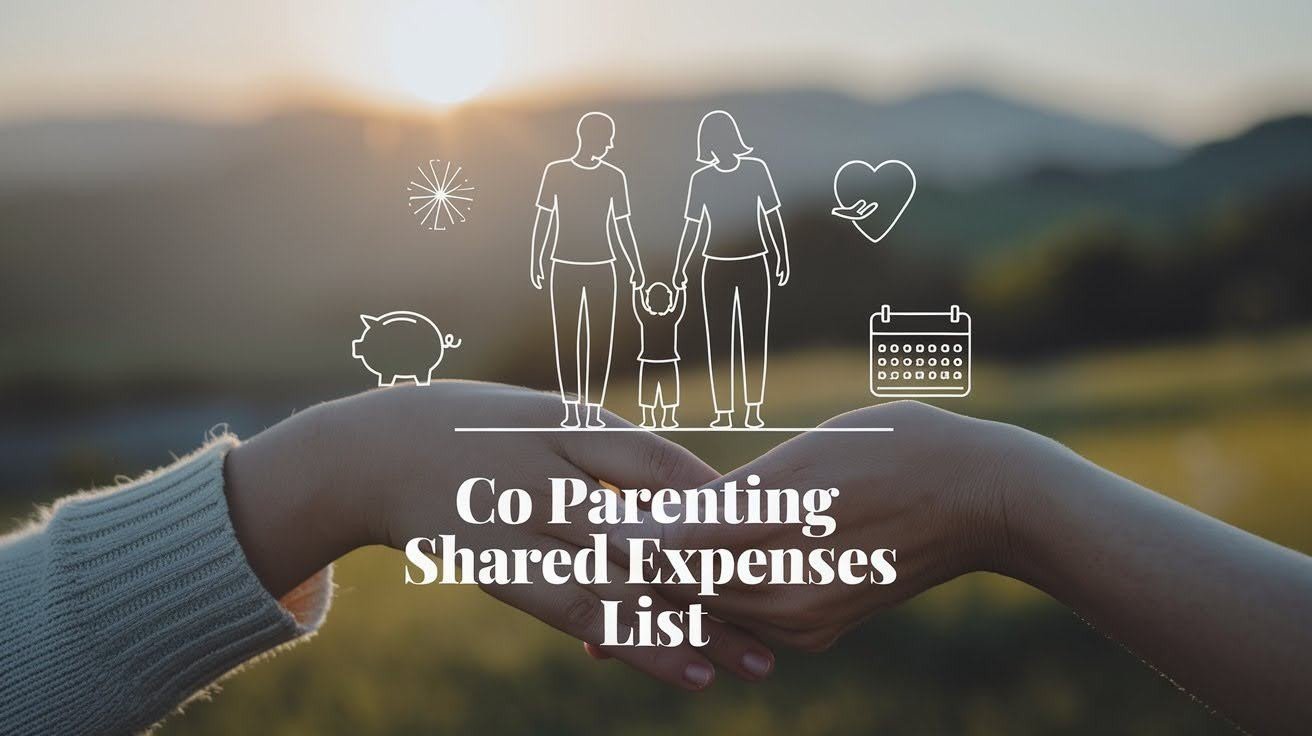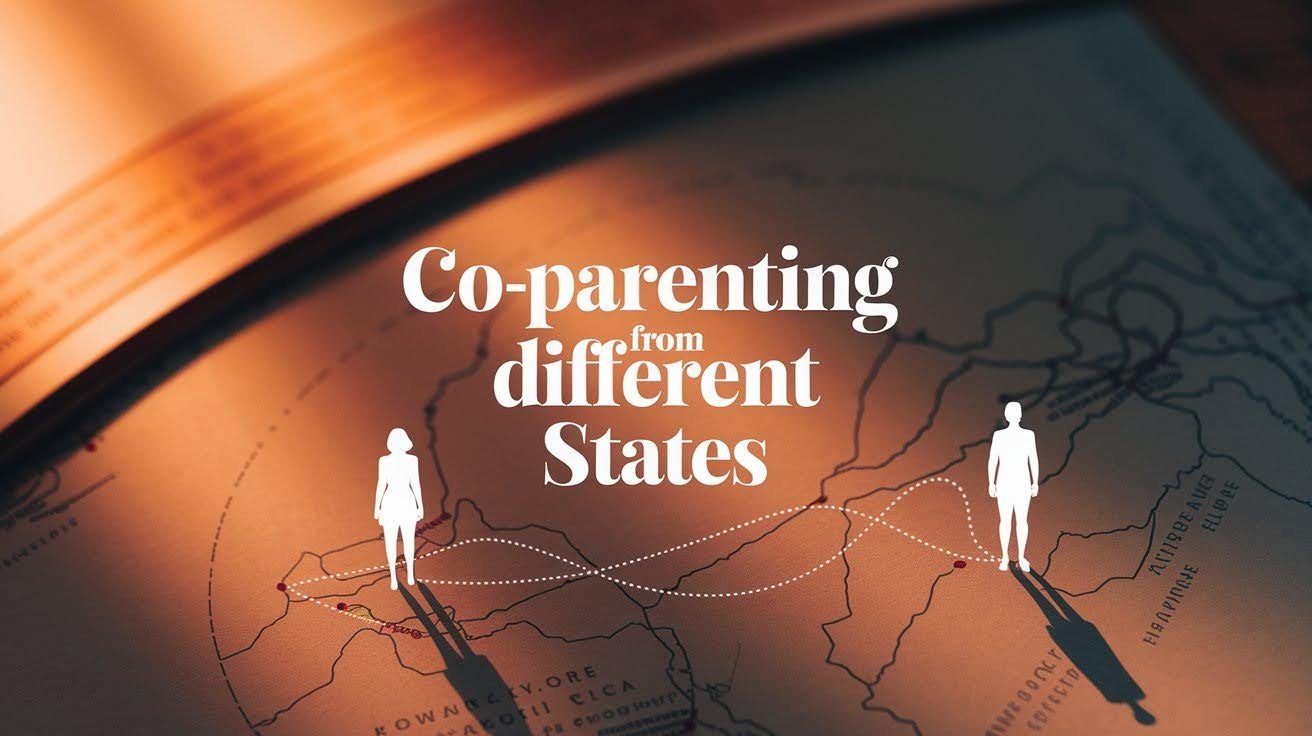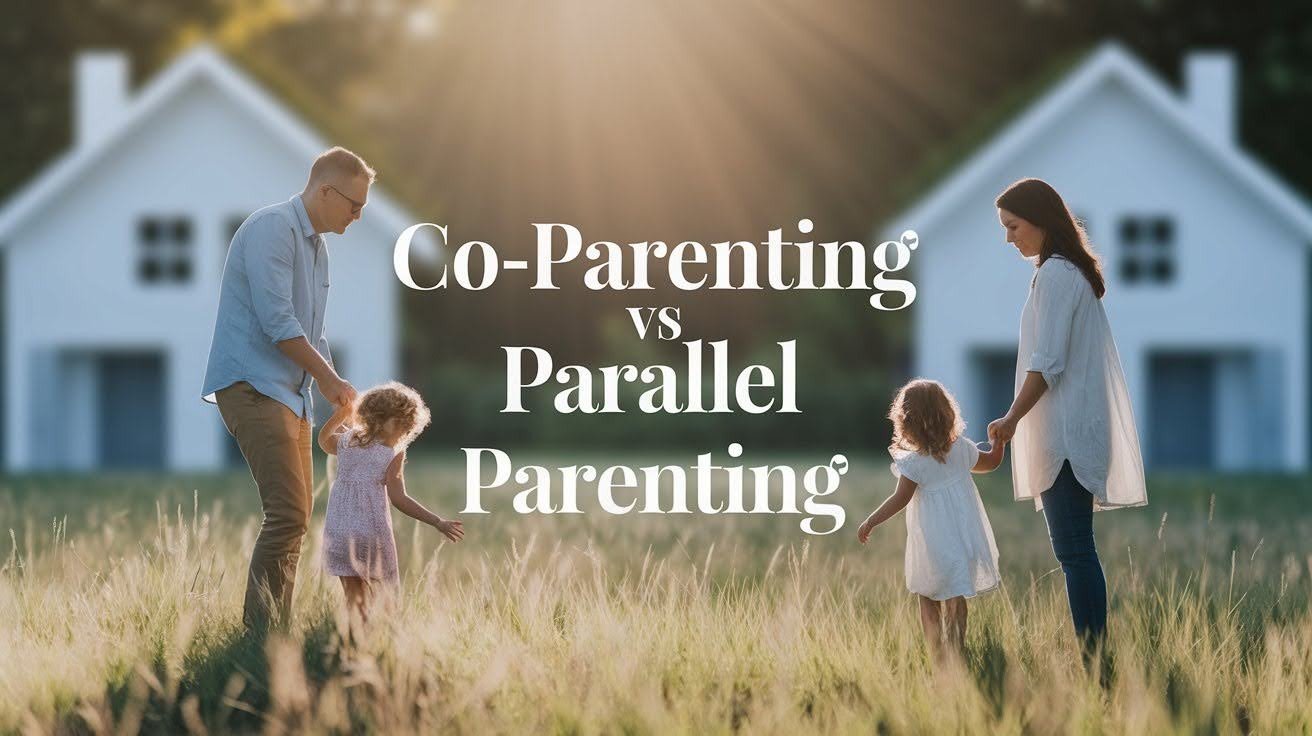Co-parenting with a narcissistic ex-partner feels like walking through a minefield. Narcissistic behaviour in co-parenting often involves creating drama, disregarding boundaries, and prioritizing their own needs over the children’s.
The right phrase to use when co-parenting with a narcissist can be your shield against constant conflict. These carefully choosen words help reduce arguments, protect your children from toxic dynamics, and keep the conversation focused on what truly matters. When you truly know exactly what to say, you take back control.
Clear, calm conversations aren’t about changing narcissistic co-parenting that’s not possible. Instead, it’s about protecting yourself and your children while still meeting parents’ responsibilities.
Essential Phrases for Co-Parenting with a Narcissist
Learning the right phrases to use when co-parenting with a narcissist can make your interactions go from explosive arguments to manageable exchanges. These tested phrases work because they remove emotional fuel that narcissistic people feed on.
Neutral and Boundaried Phrases
Neutral language stops narcissistic co-parents from finding ways to start fights or create drama. When you stay factual and emotionless, there’s nothing for them to grab onto and twist.
These boundary-setting phrases make your limits crystal clear without room for argument or negotiation.
- Please keep communication focused on the child’s name
- I will only respond to messages sent through the co-parenting app
- It’s not okay with me when personal matters are included. Let’s stay focused on the parenting request.
BIFF Method Phrases (Brief, Informative, Friendly, Firm)
The BIFF method keeps your responses short and to the point, giving narcissistic co-parents less material to twist or argue about. This approach saves your energy for what really matters.
Friendly but firm language shows you’re cooperative about parenting while refusing to engage in personal attacks or drama.
- Our child’s appointment is at 3:00 PM. Please confirm attendance.
- I understand your concern. The schedule will remain the same this week.
- Thank you for letting me know. I’ll handle it on my time.
Phrases for Enforcing Boundaries
Strong boundaries are essential when dealing with someone who constantly pushes limits and tests your patience. These phrases make your position clear without opening the door for negotiation.
Documentation language lets your co-parent know that you’re keeping records, which often encourages better behavior.
- I’m not able to change the schedule. Please follow the parenting plan.
- That won’t work for me. The plan we agreed on still stands.
- I’ll document this for future reference.
Phrases to De-escalate Conflict
De-escalation phrases help you exit conversations before they become fights. They acknowledge what was said without agreeing to unreasonable demands.
Child-focused responses redirect attention away from adult conflict and back to parenting priorities.
- I’ll consider your input. This conversation is complete.
- Noted. I’ll move forward as planned.
- I’m focusing on what works best for our child.
Why These Phrases Work: Psychology Behind Them?
Understanding why specific phrases to use when co-parenting with a narcissist are effective helps you use them more confidently. These responses are designed based on how narcissistic minds operate.
Narcissistic Co-parents Thrive on Emotional Reactions
Narcissistic people get energy from creating chaos and emotional responses in others. When you respond with neutral, calm language, you take away their favorite source of attention.
Emotional reactions feed their need for drama and control, so staying factual and brief stops this cycle.
BIFF Method Keeps Communication Clear
The BIFF approach works because it gives narcissistic co-parents exactly what they need for parenting decisions without the extra information they can twist. Short messages are harder to misinterpret.
Clear, brief communication also saves your time and energy for more important things than endless text arguments.
Boundaried Phrases Shift Focus to Child-Centered Solutions
When you consistently redirect conversations back to your children’s needs, it becomes harder for narcissistic co-parents to make everything about themselves. This protects kids from adult drama.
Child-focused language also makes it clear to anyone reading your communications (like judges or mediators) that you prioritize your children’s welfare.
Strategies for Communicating Beyond Phrases
Mastering effective phrases to use when co-parenting with a narcissist is just the beginning. Your overall communication strategy matters just as much as the specific words you choose.
Stick to Written Communication
Written communication through co-parenting apps creates automatic timestamps and records of every interaction. This documentation becomes invaluable if you need legal intervention later.
Apps also reduce opportunities for harassment since most platforms monitor inappropriate content and allow you to filter messages.
Avoid JADE Responses (Don’t Justify, Argue, Defend, Explain)
Over-explaining your decisions gives narcissistic co-parents more material to argue about and more ways to find fault with your reasoning. Simple, fact-based responses work better.
When you justify your choices, you accidentally suggest that your co-parent has the right to approve or disapprove of your parenting decisions.
Parallel Parenting as a Last Resort
Sometimes, even the best phrases to use when co-parenting with a narcissist aren’t enough to make communication manageable. Parallel parenting minimizes contact to the absolute essentials only.
This approach treats co-parenting more like a business relationship, with minimal personal interaction and strict focus on logistics and schedules.
Gray Rock Method for Minimal Engagement
The gray rock technique involves becoming as boring and unresponsive as possible during interactions. You provide only the necessary information without emotional reactions or personal details.
This method works because narcissistic people lose interest when they can’t get dramatic responses or personal information to use against you.
Setting Communication Schedules and Limits
Establishing specific times and methods for communication prevents constant interruptions and harassment throughout your day. Most co-parenting issues aren’t true emergencies.
Clear communication windows also help you mentally prepare for interactions and limit their impact on your daily life.
Using Professional Mediators When Needed
Third-party professionals can help facilitate necessary conversations when direct communication becomes impossible. Mediators keep discussions focused on children’s needs rather than adult conflicts.
Professional involvement also creates additional documentation and oversight, which can be helpful in legal proceedings if needed.
How to Protect Children from Narcissistic Dynamics?
The most important reason to learn effective phrases to use when co-parenting with a narcissist is protecting your children from toxic relationship patterns. Kids notice tension even when adults think they’re hiding it well.
Keep Conflict Out of Sight
Children absorb stress from their environment even when they don’t understand the specific problems. Keeping arguments away from kids helps them feel secure and loved.
Private conflict management also prevents children from feeling responsible for fixing adult problems or choosing sides between parents.
Validate Children’s Experiences Without Attacking the Other Parent
Kids need to know their feelings about difficult situations are normal and acceptable. You can acknowledge their struggles without criticizing your co-parent directly.
Validation helps children develop healthy emotional processing skills and builds trust between you and your child.
Model Calm, Respectful Communication
Children learn relationship skills by watching how adults handle conflict and stress. When you stay calm and respectful, you teach valuable life lessons.
Your modeling also shows children that they can handle difficult people and situations with grace and strength.
Protecting Yourself While Using Tips Phrases
Using the right phrases when co-parenting with a narcissist consistently requires emotional strength and support. Taking care of yourself makes you a better parent and helps you stay consistent with boundaries:
Tip 1: Work with a therapist who understands narcissistic abuse to help you stay strong and consistent with your communication boundaries.
Tip 2: Keep detailed records of all interactions, including screenshots of threatening or inappropriate messages from your co-parent.
Tip 3: Build a support network of friends and family who understand your situation and can offer encouragement when things get difficult.
Tip 4: Use legal tools like detailed parenting plans and custody evaluators to create structure and accountability in your co-parenting relationship.
Tip 5: Practice self-care activities that help you stay calm and centered, such as exercise, meditation, or hobbies you enjoy.
Tip 6: Set phone and app boundaries so co-parenting communication doesn’t interrupt your entire day and night.
Tip 7: Learn to recognize manipulation tactics so you can respond appropriately instead of getting drawn into arguments.
Tip 8: Create emergency plans for situations when your co-parent becomes especially difficult or threatening.
Tip 9: Remember that you cannot control your co-parent’s behavior, but you can control how you respond to it.
Conclusion
Learning effective phrases to use when co-parenting with a narcissist gives you practical tools for managing a challenging relationship. These words are designed to protect both you and your children from unnecessary drama and conflict.
Remember that these phrases work as shields, not weapons. Your goal isn’t to win arguments or change your co-parent’s behavior it’s to create stability for your family. When you stay consistent with calm, clear communication, you model healthy relationships for your children.
You cannot fix or change a narcissistic co-parent, but you can absolutely control how you respond to their behavior. With practice, these communication strategies become automatic, making co-parenting less stressful for everyone involved.
Frequently Asked Questions
How do I respond when my narcissistic co-parent tries to start an argument over text?
Stay calm and brief. Use neutral replies like “Noted” or “I’ll move forward as planned.” Don’t defend yourself or engage emotionally. This prevents unnecessary conflict and keeps the focus on your child, not drama.
What should I do if my co-parent ignores the communication boundaries I’ve set?
Hold your ground. Document boundary violations and respond only through your chosen method. If they contact you elsewhere, ignore it. Consistency shows you’re serious about protecting your peace while keeping communication focused on parenting.
How can I tell if my phrases are working with my narcissistic co-parent?
You’ll notice shorter conversations, less drama, and more attention on parenting matters instead of personal attacks. When arguments don’t escalate and manipulation attempts lose power, it’s a sign your approach is helping you regain control.
Is it okay to completely ignore messages from my narcissistic co-parent sometimes?
Yes. Always respond to messages directly about your children’s needs, but don’t reply to personal attacks, guilt trips, or manipulation. Protecting your mental health ensures you show up as the best parent for your kids.
What if my co-parent says I’m being cold or mean when I use these phrases?
Expect complaints it’s normal when a narcissistic co-parent loses control. Stay consistent with boundaries. You’re not being cold you’re protecting your emotional health and setting the example that parenting conversations should stay respectful and child-centered.








